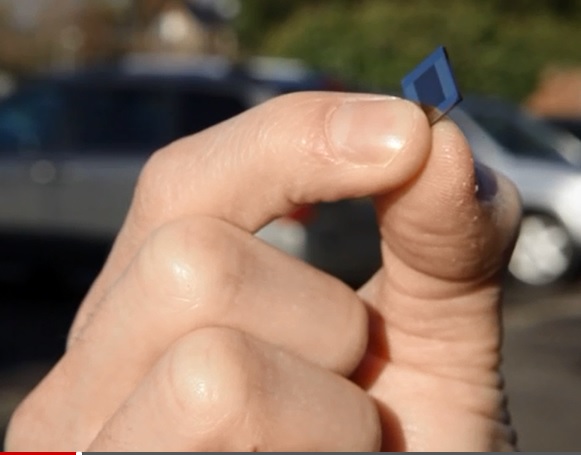
Many of us have heard the claims that dogs – with their acute sense of smell – have “sniffed out” disease in their owners. So, what if a technology could be developed that allowed humans the same type of “superpower”?
In fact, such a technology is not very far-fetched at all. Dr. Andrew Koehl, a researcher who originally started to develop the sensor-based technology at the University of Cambridge and has since continued to develop it at Owlstone Nanotech, has invented a microchip spectrometer technology that can detect chemicals in the air.
Koehl calls the product a “digital nose,” and while it is no bigger than a dime, it uses sensing technology to create a spectrum of what chemicals are in the air. From there, the microchip can identify the unique make-up of each chemical. The sensor is then calibrated to a certain level, triggering an alarm to alert users when chemicals exist in larger-than-normal quantities.
In a recent interview, Koehl indicated, “We can detect down to parts per billion levels. To give you an analogy, that's equivalent to one drop in an Olympic size swimming pool.”
In essence, this “digital nose” can eventually be used as a breathalyzer to detect diseases. Although now the size of a dime, research and work is continuing to make the microchip even smaller so that it can easily be adapted for use in healthcare settings; hopefully, one day, as a diagnostic device.
“What's amazing is that there really are compounds on your breath that indicate illness, that's been shown through a number of studies and we can detect those,” Koehl added. “There have already been a number of research papers published suggesting we can detect cancer, detect tuberculosis, detect asthma.”
While the technology was originally envisioned for use in defense applications – such as detecting explosives and toxins — Koehl and others at Owlstone are excited about the potential applications in the healthcare arena. The technology has already shown great promise and has accumulated a lot of interest. In fact, Koehl said the “digital nose” sensing technology is already being used by Coca Cola, Nestle, BP, and Shell.
Koehl envisions that this type of sensor could also eventually be used in everyday applications such as alerting homeowners when food in their refrigerator has spoiled or indicating the best time to take a meal out of the oven.
“More recently, we've been looking at consumer spaces so we're talking to a number of manufacturers of mobile phones and mobile phone components,” he added. “We want to develop a module small enough to put into mobile devices like phones.”
Via CNN
Advertisement
Learn more about Electronic Products Magazine





